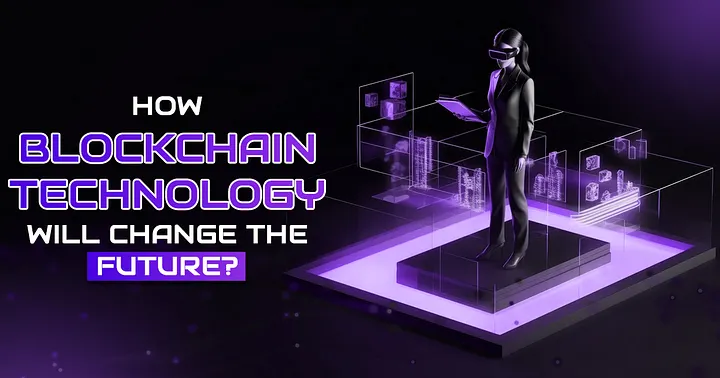
Blockchain technology has the potential to revolutionize the future of our world through its high-tech solutions for problems across many industries such as finance, supply chain management, travel, healthcare, voting, digital storage, and more.
This technology will change the way things are done across these sectors in the years to come.
Here are some ways in which blockchain will change the future:
Blockchain technology makes it possible and convenient for various existing systems to go decentralized. As you may know, one of the core features of blockchain is decentralization, which means control over the network or system is distributed across multiple entities rather than centralized with one entity. This helps reduce the risk of fraud and failure and increases transparency in transactions.
A very good example of how decentralization works is the Rexx Ecosystem, which provides access to various decentralized apps and platforms for transparent and secure digital gaming, news, payments, money transfer, supply chain, and more.
Blockchain utilizes cryptographic techniques to ensure the security of transactions on its network, thus making it nearly impossible to modify transactions or steal user data. Furthermore, this high level of security helps to maintain trust among users.
A blockchain cryptographically secures each completed block and links it to the previous one, creating an impenetrable and immutable ledger of transactions.
Another way blockchain technology will change traditional systems is by enabling peer-to-peer transactions between participants, thereby removing the need for intermediaries such as banks for financial transactions such as money transfers, loan processing, etc.
This will lead to faster and more secure transactions with reduced fees, which will be game-changing, particularly for cross-border payments.
One of the biggest benefits of blockchain technology is that it improves transparency in supply chains, which increases trust in B2B and B2C transactions.
By using blockchain technology, companies can record every transaction, from raw material procurement to product manufacturing and transportation, in an immutable, public database. Consequently, this ensures complete transparency and traceability in supply chains.
This will change how traditional supply chains operate and boost customer trust in product’s genuineness and quality, particularly in industries such as food, fashion, and pharmaceuticals.
Rexx is developing a decentralized product called ReXX Network Chain that uses blockchain technology to promote transparency and traceability in supply chain management.
Rexx Network Chain: A Look Into The Innovative Blockchain Platform
Smart Contracts automatically execute their programmed terms and conditions when they are met, based on blockchain technology.
These contracts reduce the need for relying on middlemen or intermediaries for honouring agreements between transacting parties, including business-to-business and business-to-customer agreements.
Smart contracts can automate various transactions and processes, including payments, money transfers, ownership transfers, and more.
Through the concept of tokenization of assets, blockchain enables asset owners to seamlessly tokenize their otherwise immovable or illiquid physical and digital assets such as real estate and art.
Tokenization means creating new tokens on a blockchain to represent specific physical or digital assets.
One of the top benefits of asset tokenization is that it increases liquidity, enabling the easy and quick sale of an asset for cash.
Tokenization enables users to buy fractional ownership in large assets such as real estate, enhancing the liquidity and tradability of these assets.
Non-fungible tokens (NFTs) provide a prime example of tokenizing and trading rare and irreplaceable assets like artwork, photos, and baseball cards online to generate income for owners.
To sum up, blockchain technology and decentralization can disrupt and reshape the future of numerous industries by fostering trust, transparency, and efficiency in traditional systems.